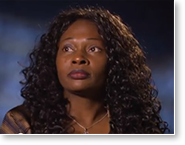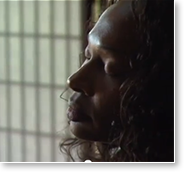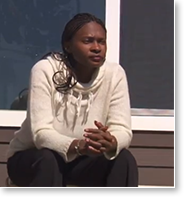In a recent series in the Huffington Post, advocates of those who have become victims of sexual assault in the military were invited to speak out about how those who have experienced military sexual trauma (MST) can be helped.
Britten Chroman, the Director of Women’s initiatives for the David Lynch Foundation published the following commentary about the role that the TM technique can play in helping those who are suffering as a result of sexual assault. You can view it on the Huffington Post by clicking here.
In 2011, 19,000 men and women boldly stood up to join their brothers and sisters in arms, to serve our country. For these men and women the horrors of war extended far beyond the battlefield. That is because those 19,000 men and women were sexually assaulted, not by enemies as an act of war, but by fellow servicemen, whom they trusted with their lives.
Those veterans returned home not to cheers and accolades but to a bleak landscape of flashbacks of rape, post-traumatic stress, and displacement. These are brave, courageous people, survivors of military sexual assault, and I am committed to helping them rebuild their lives.
I am the director of the women’s initiative of the David Lynch Foundation, a non-profit organization, established by filmmaker David Lynch, to bring the scientifically tested, potentially stress-reducing Transcendental Meditation technique to at-risk populations, including underserved urban youth, veterans with PTSD and their families, and abused women and girls.

Tara Wise
In this capacity, I met Tara Wise Jones, an extraordinary woman veteran and survivor of military sexual trauma, who came to the David Lynch Foundation depressed and suicidal. After learning Transcendental Meditation, Tara was not only able to rebuild her own life, but is now the Executive Director of the National Women Veterans Association of America, an organization she started that helps women veterans transition from active service and heal from military sexual assault and post-traumatic stress disorder.

For Tara, a service-connected gulf war era Navy veteran, serving in the military was a family tradition. Her plan, after leaving the military, was to become a naval academy officer and join the FBI special crimes unit. After being sexually assaulted, while in service, her life changed drastically. Tara said, “I started isolating myself from co-workers, friends, and family immediately.” Tara was unable to function, became deeply depressed and turned to substance abuse.
Tara found the David Lynch foundation online and learned the Transcendental Meditation technique — a simple, natural, effortless procedure practiced 20 minutes twice each day while sitting comfortably with the eyes closed. “TM has helped me to calm my mind and I stopped having all the negative thoughts that I was having as I tried to minimize the amount of prescription medication that I was taking.”
The TM technique has been shown in pilot studies to deliver powerful relief from the symptoms of post-traumatic stress, from which victims of rape and domestic violence often suffer. Findings suggest that TM can lead to reduced flashbacks and bad memories, decreased insomnia, reduced substance abuse and alcoholism, and increased ability to “act” rather then “react.”

“TM is so suitable for women veterans because it is convenient and doesn’t require a lot of bells and whistles,” Tara says. “All you need is you — and you can meditate anywhere, anytime. When I get really stressed or depressed I meditate and it helps to remind me that everything is going to be ok.”
“TM gave me the opportunity to transition back to the person I actually was before I went into the military,” Tara says. “After I got out of the military something was missing from my life. TM gave me back what I was missing — my sense of spirituality and moral being, the very foundation of who I was raised to be — and helped me to transition back to the person I was before the military. I really like the person that I am now. I have found my purpose and my calling. I love the work I do with NWVAA and the various supporters that respect my work.”
Tara’s success and her story make me all the more passionate about the work we do at the David Lynch Foundation and even more committed to supporting the wonderful organizations, such as Invisible No More, that take a stand against military sexual assault.



